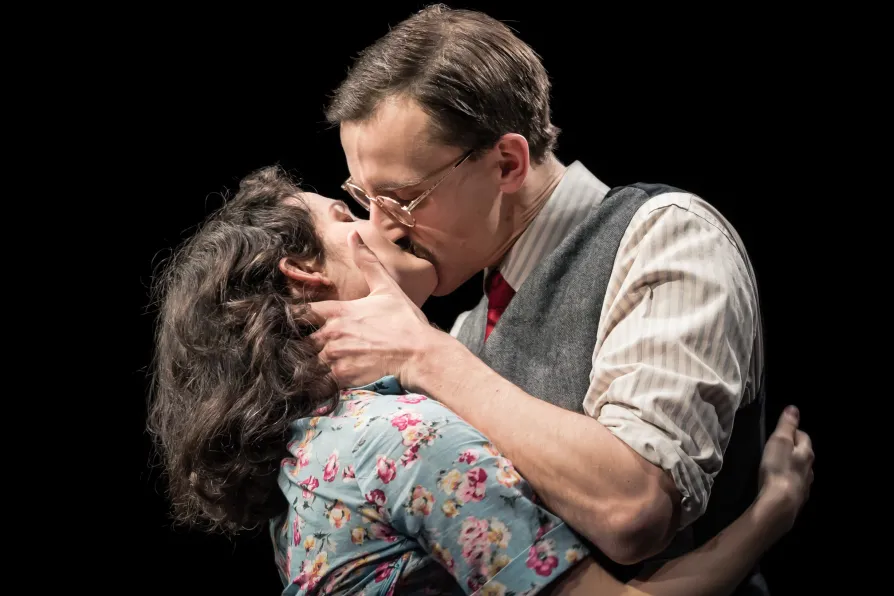MATTHEW HAWKINS contrasts the sinister enchantments of an AI infused interactive exhibition with the intimacies disclosed by two real artists

 Fatal Attraction: Ruby Bentall (Esther Rubenstein) and Henry Proffit (Jakob Rubenstein)
[Scott Rylander]
Fatal Attraction: Ruby Bentall (Esther Rubenstein) and Henry Proffit (Jakob Rubenstein)
[Scott Rylander]
JAMES PHILLIPS’S play is the story of Ethel and Julius Rosenberg, who perished on the electric chair for allegedly passing atomic warfare secrets to the Soviet Union.
While the names have been changed and there is some dramatic licence, essentially it’s the authentic history.
The central focus is the American-Jewish couple Esther and Jakob Rubenstein, devoted soulmates with a passion for communism, while Esther’s brother David and his soon-to-be-wife Rachel also shape the drama.

MARY CONWAY applauds the success of Beth Steel’s bitter-sweet state-of-the-nation play

MARY CONWAY is blown away by a flawless production of Lynn Nottage’s exquisite tragedy

MAYER WAKEFIELD laments the lack of audience interaction and social diversity in a musical drama set on London’s Underground











